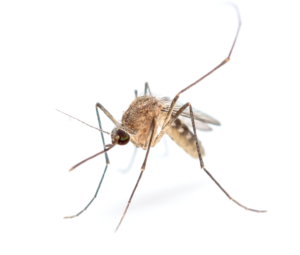Mosquitos and Other Insects
 Summer sun and outdoor fun are often associated with pesky mosquitos and other insects.
Summer sun and outdoor fun are often associated with pesky mosquitos and other insects.
There are many precautions to prevent your child from becoming a meal for insects and other critters.
Start by preventing exposure
- Any standing water is a potential mosquito breeding ground. Prevent them from taking up living in your backyard by regularly emptying any containers collecting water, including kiddie swimming pools, bird baths, roof gutters, flowerpots, and fire pits.
Know your risks
- Mosquitoes are most common in weedy or wooded areas and by standing water. Ticks and chiggers like long grasses and wooded areas. Bees are common in gardens and picnic areas. Don’t disturb the anthills!
Time your outings to avoid potential exposure risk
- Insects have regular hours and schedules that they keep. For example, mosquitoes tend to be dusk-to-dawn creatures, and the peak season for ticks is April to September.
Bugs can’t bite what they can’t access!
- Place netting around strollers and other areas where children are resting to protect them from critters.
- Dress children in protective light-coloured clothing with long cuffed sleeves, tuck long pants into socks or shoes, and a hat with a brim can help deter bugs from snacking on your little one’s neck and ears.
Insect repellants:
Depending on your child’s age, you can use insect repellent to lower their chances of being bitten by an insect. There are many different kinds available and some work better than others. DEET gives the longest-lasting protection against mosquito bites.
- Do not use on babies under six months old. Use mosquito netting and try not to be outside when insect activity is high.
- For children six months to two years old, use insect repellent only when there’s a high risk of insect bites that can spread infections and diseases. Do not use it more than once a day.
- For children over two years old, you can use insect repellent up to three times a day.
- When using insect repellent for your child, use just enough of the least-concentrated formula of DEET (10% or less) on their exposed skin and clothing. Keep insect repellent away from their face, hands and any irritated skin.
When sunscreen or insect repellent is no longer needed, wash them off the skin well with soap and warm water. This will reduce unnecessary exposure to those chemicals.
Services related to this information:
- Contact your Public Health Nurse
- 811 HealthLine (Newfoundland & Labrador) – Call 811 or 1-888-709-2929 / TTY 1-888-709-3555

